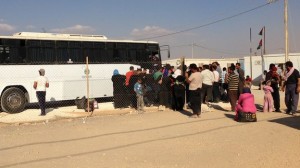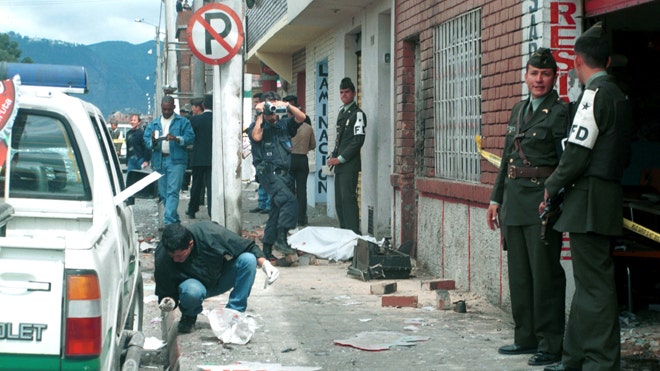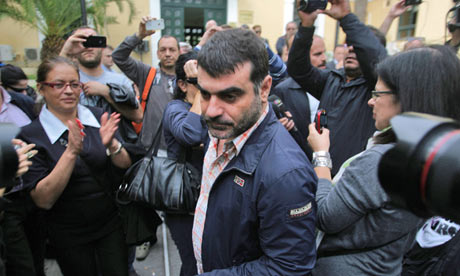By Emily Schneider
Impunity Watch Reporter, Middle East
AMMAN, Jordan – Feelings of unrest and dissatisfaction are spreading among the 25,000 Syrian refugees in Zaatari refugee camp, a makeshift tent village near the border in Jordan.

“We are living in a prison,” Saeed Howshan, a Syrian who fled his hometown for the safety of Zaatari, told BBC reporter. “It is like we are prisoners of the Jordanians, it is as if they are working with the Syrian regime.”
The refugee camp is designed to hold people who have crossed the border illegally to avoid the bloodshed in Syria. Syrians can normally enter Jordan without a visa, so when the conflict began, some Syrians migrated to Jordan’s cities. There, they were housed and cared for by the Jordanian government. But as more and more people attempted to escape the conflict the cities are too full to handle the surge of people. Now, refugees are directed into the Zaatari tent city, which was opened in July.
The Jordanian government estimates the country is now home to 200,000 refugees, 15% of them here in the camp.
The Jordanian government insists the refugees’ basic needs are met. But The Jordanian Society for Human Rights (JSHR) published a report in which it pointed out numerous problems in Zaartari. The report underlined that the site of the camp is “unhealthy” as it is located in a dusty area, and noted that most refugees are living in plastic tents, inside which the heat is “unbearable.” They also stated that the camp lacks adequate water to support its population.
Two meals are distributed daily to the refugees, breakfast and lunch, according to the report. However, there is no variety in the diet and many of the meals arrive spoiled because they are prepared outside of the camp before being transported across the hot sands
In addition, the society said the camp’s toilets are “in bad shape and public for both men and women”, adding that Zaatari also lacks entertainment or leisure facilities.
Last week, a crowd gathered in the camp to demonstrate after what they believed were two days worth of inedible meals. Demonstrators turned violent and someone set a portacabin ablaze. The protest was quickly quashed by authorities, who came in and used tear gas to disperse the crowd.
An official at the camp told a reporterthat supporters of the Syrian regime have infiltrated the camp to cause trouble. One high-placed official claimed that pro-regime shabiha, Syrian paramilitary thugs, militiamen have been planted among the refugees to feed information back to the regime in Damascus as well.
Refugees disagree with this assessment and say the recent violent protests have been instigated only by their own disasifaction. Ali, a refugee, says “If we found one,” referring to Syrian agents, “we would kick them out” and adamantly denies that the violence was a set up. “We have just had enough,” he said.
Now, many refugees are choosing to make the journey back to their war-torn homes rather than wait out the conflict in Zaatari.
“We face a slow death here, or a fast death over there,” says Hussain Ayish, pointing towards the border.
For further information, please see:
BBC News – Syrians Choose War over Jordan Zaatari Refugee Camp – 1 Nov. 2012
NY Times – Market Rises, Perfume and All, as Refugees Face a Long Syria War – 31 Oct. 2012
Jordan Times – Rights Group Urges Relocation of Zaatari Refugee Camp – 30 Sept. 2012
Gulf News – Inside the Zaatari Refugee Camp – 12 Sept. 2012



